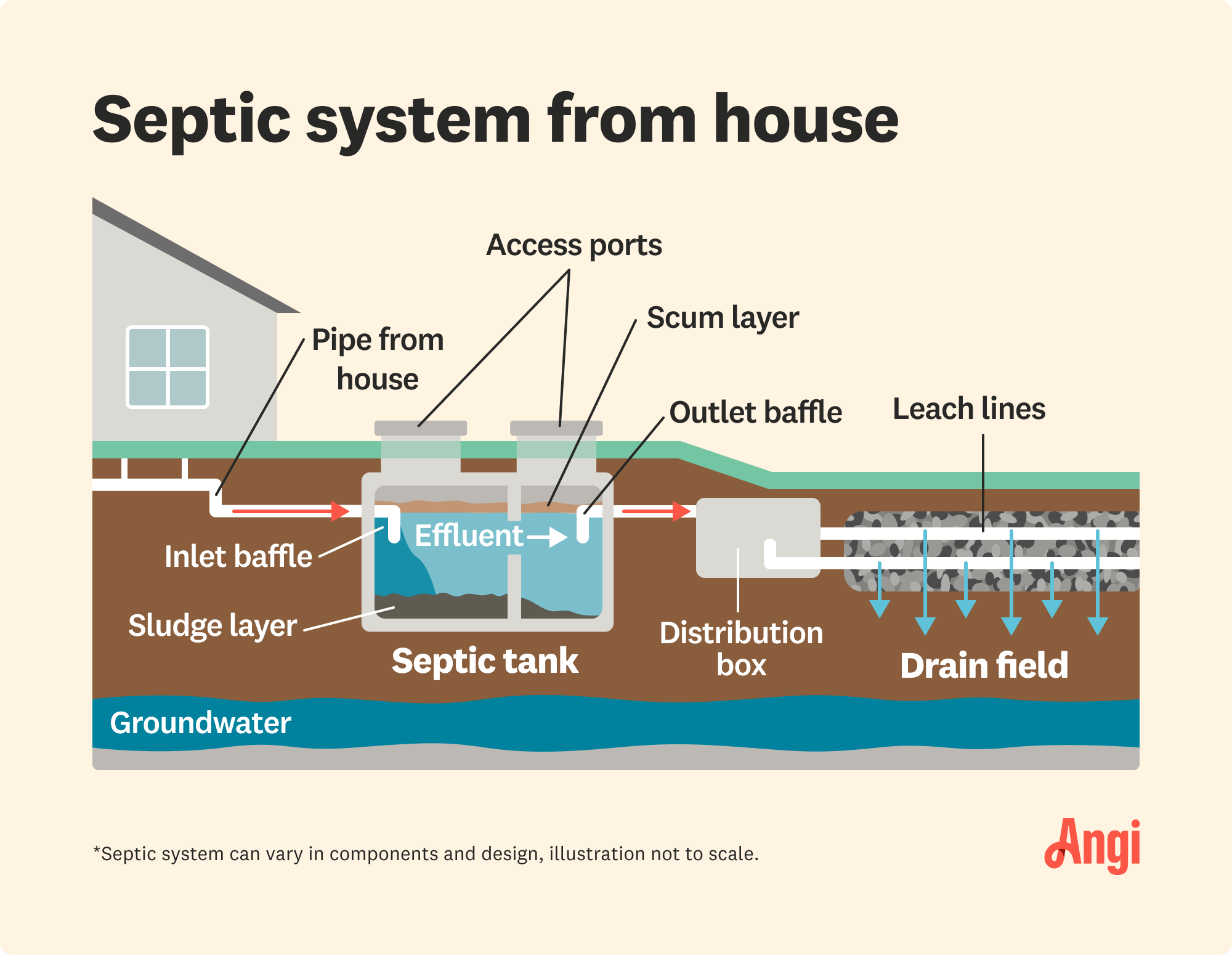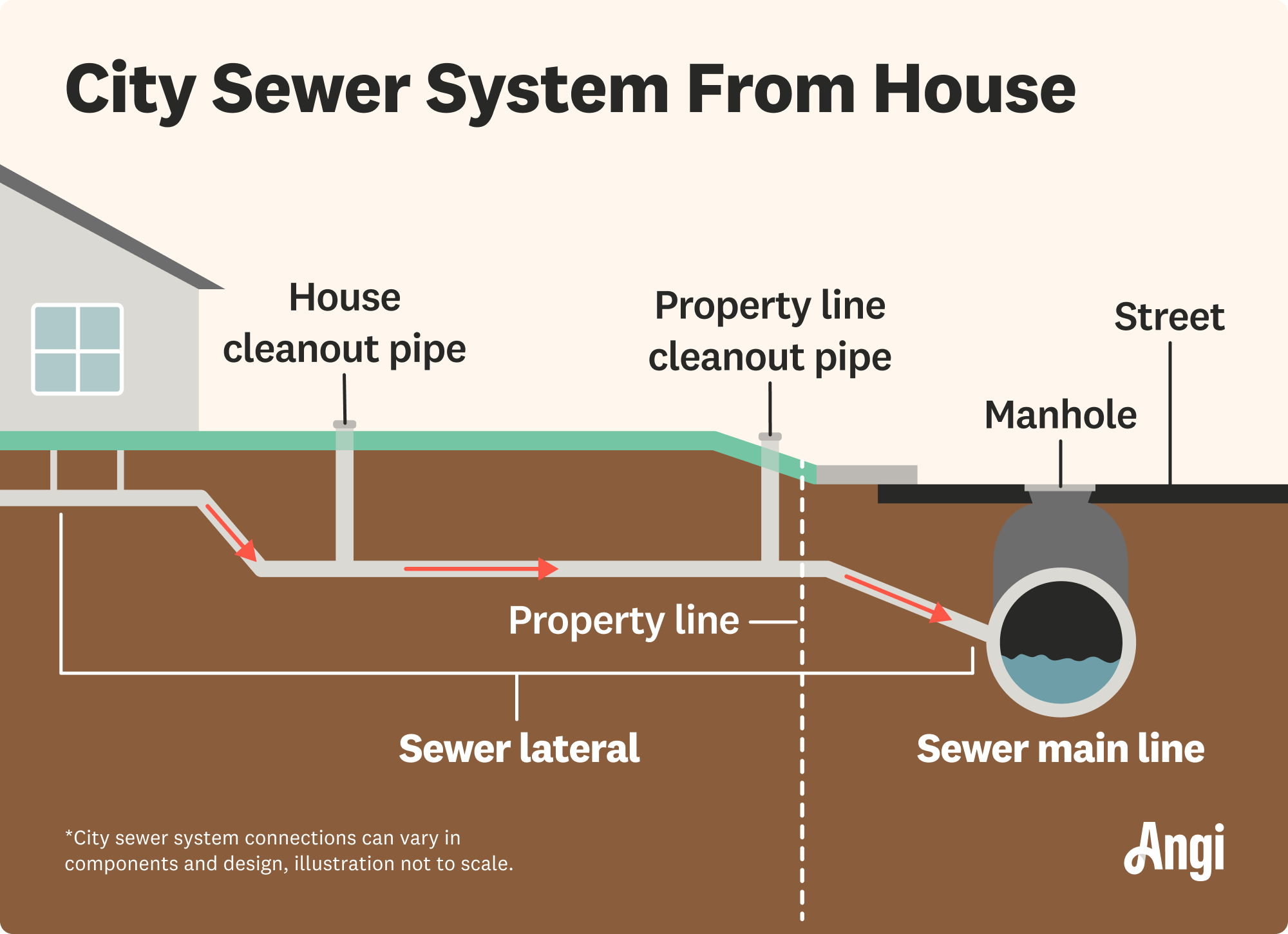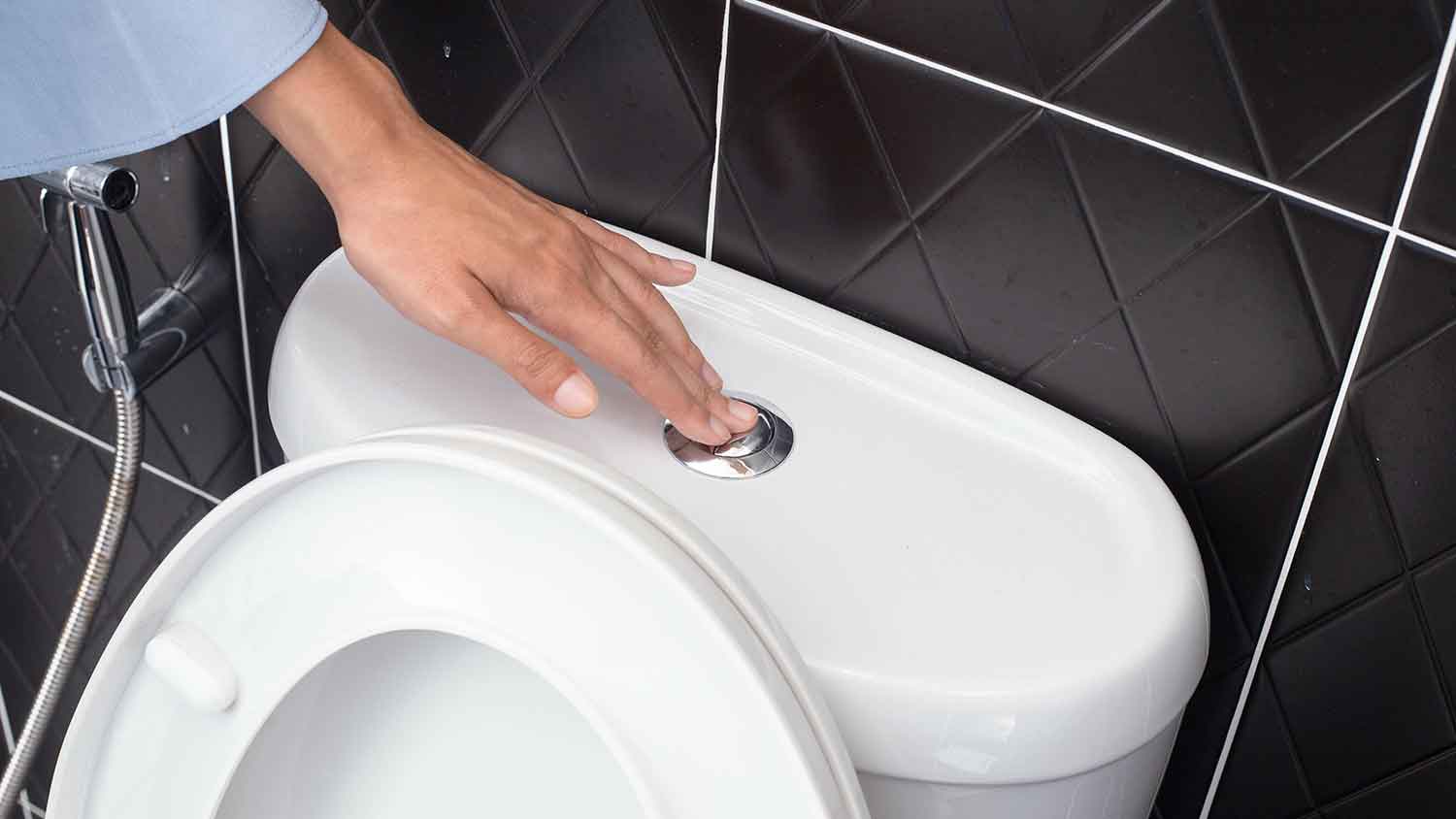
Need to know what sewer line replacement costs in Baltimore, MD? This guide will help you prepare to budget for sewer line replacement done by local contractors.
Don’t waste time and money installing the wrong system for your home


Septic and sewer are types of wastewater management services.
Septic is common in rural areas, while sewer is best for municipalities.
Sewer service costs less to install but comes with a monthly bill.
Both require professionals for installation and repairs.
Talking about wastewater management may stink, but the reality is every home has to have a system in place to carry away and treat waste. Whether you’re living in a city or looking to settle down in the country, you may be considering whether to connect to the local sewer system or install your own septic system to handle wastewater. Find out the major differences, pros, and cons of septic versus sewer to determine which system is right for your household.
| Septic | Sewer |
|---|---|
| Great for rural areas | Common for properties in towns or cities |
| Allows for independence from city utilities | Lower cost to connect to public sewer service |
| No monthly costs | Works for smaller lot sizes |
| Requires at least 1/4 to 1/3 acre land to install | Monthly bills ranging from $15 to $150 |
| Higher upfront installation cost | Your service can be impacted by clogs or repairs |
The primary difference between a septic system and sewer connection is who is responsible for the wastewater management. When you are on a sewer line, your property connects to the municipal wastewater management system, so wastewater from your property goes from the house to the main sewer line to the city’s sewer system, where it will be treated at municipal facilities. A septic system is on your property, and the septic tank and leach field in your yard will filter and treat the wastewater. This also leaves you responsible for hiring in pros to come and pump the tank when the solid waste builds up in the bottom of it.

A septic system is an on-site wastewater management system with a main line that carries wastewater from plumbing around the house to what’s called a septic tank. In the septic tank, the wastewater separates into three layers: scum that floats on top, the water, and the solid waste, called sludge, that settles at the bottom of the tank. The water, known as effluent, flows through an outlet pipe, or baffle, to the drain field, or leach field, where the water is treated by bacteria in the soil before it slowly disperses into the ground and groundwater.
Before considering a septic system, keep in mind that more and more areas are incentivizing a move away from septic. Cities across the nation are securing funding to move hundreds of homes from septic systems to city sewage at little or no out-of-pocket expense for homeowners. Check with your municipality to see if any programs are currently active near you.
| Pros | Cons |
|---|---|
| Lower monthly cost | More maintenance |
| Work independently | Higher upfront cost |
| Long-lasting | Clog risk |
Best for:
Homes in rural areas
Anyone looking to go “off the grid”, or disconnect from municipal utilities
Properties with at least 1/4 to 1/3 acre of space for tank and drain field installation
Sewer lines can be expensive to run from a municipality to the outskirts of town, so septic systems are popular for homes in rural areas. They also allow homeowners to disconnect from the city utilities, which can be popular for anyone seeking more independence or households that want to be “off the grid”.
Because the septic system is independent of municipal wastewater management, it doesn’t include a monthly bill. The system, when cared for properly, will last about 20 to 40 years before you need to consider a septic tank replacement. The leach field will last about 50 years before you need to refresh or replace it.
Septic systems aren’t perfect, though. Compared to connecting a property to the city sewer system, installing septic costs more upfront, and you’ll need to pay to have the tank professionally pumped every few years.
While you can install a septic system in rural or urban areas, you need to meet a minimum lot requirement to fit the tank and leach field. This is at least 1/4 to 1/3 of an acre, but your county or state laws may require more space, at least 1/2 to 1 acre, to install a septic system.
You also have to be careful with what you pour down the drain or flush with a septic system. Chemical drain cleaners can harm the helpful bacteria in the system that clean the wastewater, and certain things like fats, oils, grease, coffee grounds, and food scraps can clog the system. You’ll often find that homes on septic systems don’t have garbage disposals to minimize clog risks, so you may want to learn how to compost any food waste if you opt for septic.

The sewer system is a public service. For a home connected to the sewer system, wastewater travels through the home’s pipes to the main sewer line on the property. The pipe then carries wastewater to the city pipes buried underground, and the wastewater from homes all over the city ultimately goes to a wastewater management facility for treatment. These facilities may use screens and filters, bacteria, chemicals, ultraviolet treatments, and energy to treat the water.
| Pros | Cons |
|---|---|
| Low maintenance | Less independence |
| Less upfront cost | Monthly service bill |
| No space requirement | Local clog impacts |
Best for:
Homes in cities
Small properties without space to install a tank and a leach field
Anyone who doesn’t want to manage their own wastewater
For city dwellers, connecting to the sewer system is the easiest option. It costs less upfront and requires much less space than installing septic. Plus, homeowners who utilize the public sewer system won’t need to worry about paying for repairs to the city pipes, nor do they need to have trucks come in to pump and carry out the sludge from a septic tank.
While properly maintained septic systems shouldn’t emit any gross odors, those systems can leak sewer gases or have wastewater backup into the home’s plumbing if there’s a clog. This is less of an issue with the public sewer system.
Some of the biggest drawbacks of sewer versus septic is that when your home is connected to the public sewer system, you have to pay a monthly bill. That might not be a huge deal if your bill is on the lower end of the range, around $15 a month, but it can really add up if you’re paying $100 to $150 per month.
If you’re seeking more independence from city utilities, a sewer system may not be right for you. It doesn’t offer that same freedom that a septic system does.
Septic is vulnerable to clogs, but sewer isn’t exempt from these issues, either. A clog in the public sewer system or any other necessary repairs could impact service to your property.
Wastewater management is essential to any household, but deciding whether to go with a public sewer versus a septic system depends on your property size, budget, and the level of maintenance you’re willing to take on.
Although you can use septic tank landscaping ideas to spruce up your yard after installing septic, you are still limited to shallow-root plants that won’t disturb the tank and septic lines. Not only that, but you’ll need to dig out the tank lid at least every few years to have it pumped. Because public sewer doesn’t require this type of space or maintenance, it offers the most attractive option when considering landscaping.
With so many different types of septic systems, including a conventional anaerobic system, chamber systems, mound systems, and more, septic offers homeowners a lot of choice in designing their system.
Sewer systems can still clog or have pipes wear down, corrode, or crack, but these issues are less common than with a septic system. Septic systems require extra care to prevent food scraps, oils, grease, and other debris from going down the drains. Septic systems can also be overwhelmed by heavy rainfall, which is less of a problem for city sewers.
The cost to install a sewer line is about $1,450 to $5,720. The public sewer service also comes with a monthly bill, which is around $66 a month on average in the U.S., although costs can range from $15 to $150 per month, depending on your municipality.
By comparison, a septic system costs $3,500 to $11,800 to install. While you won’t need to pay a monthly bill, you will pay $550 on average every three to five years for the cost of septic tank pumping.
Although a septic system costs more upfront to install, if you keep up with maintenance, like inspections and cleaning the septic tank, you could save money in the long-run compared to connecting to the city sewer system, especially if you live in an area that charges higher monthly rates for sewer services.
Both connecting to a public sewer system with new lines and installing a septic system require licensed professionals, so you won’t be able to do either of these projects yourself.
Like with installation, repairs for both sewer lines and a septic system both require a professional. While that may mean both aren’t easy to repair the DIY way, you can hire a local septic tank company or plumber to quickly help with any repairs that your wastewater management system may need.
Aside from keeping the pipes on your own property clean, connecting to the public sewer system is less maintenance. If the city pipes need to be cleaned or repaired, the city handles that for you. With septic, the system is on your property, and you’ll be responsible for hiring pros to inspect and pump the tank regularly.
While a septic system is expected to last about 20 to 40 years when properly cared for, city sewer systems are designed to last about 50 to 100 years, depending on the pipe materials. Pipes made from clay or cast iron may last about 60 to 75 years, while polyvinyl chloride (PVC), high density polyethylene (HDPE), or concrete pipes may last around 100 years.
Septic systems are considered more eco-friendly than a sewer system, but only if you keep up with maintenance. Public sewer systems use energy and chemicals to treat water, and because they run throughout the municipality, they need more infrastructure. Septic systems rely on beneficial bacteria to naturally treat the wastewater. However, failing to maintain the septic system can cause untreated wastewater to leak into the soil, property well water, or even local waterways, which is bad for the environment.
Custom Paint Jobs LLC turned our outdated bathroom into a modern masterpiece.
Window Depot did an amazing job on my deck. I wasnt sure what I wanted to do, but their composite decking was affordable and will last a long time. I am excited to have family over, and I am no longer embarrassed by my backyard. Jeff and the ground crew were polite, respectful, and caring for...
AFS was excellent from start to finish. Jess, the sales associate, was fantastic...very knowledgeable and very professional. The installation crew was excellent. I couldn't be more pleased with the process. Best of all, my new floor looks fantastic!
We used Unique Hardwood Floor LLC three years ago to work on the floors of a 70 year old home that needed a great deal of work. Some floors needed repairs, some were replaced and others just needed to be refinished. It was a complicated job as they needed to blend the old and the new to...
Horrible. Did not reply to my numerous Emails and phone calls.
Very good and professional. Happy customer
From average costs to expert advice, get all the answers you need to get your job done.

Need to know what sewer line replacement costs in Baltimore, MD? This guide will help you prepare to budget for sewer line replacement done by local contractors.

The average cost to connect to a public sewer line in Columbus, OH, depends on the linear footage, piping material, local regulations, and more.

Need to know what sewer line replacement costs in Philadelphia, PA? This guide will help you prepare to budget for sewer line replacement done by local contractors.

It’s a big job to replace a sewer line, so it’s important to consider all of your options. Learn why it’s important to get a pro to investigate the cause of your sewer line problem, how much a replacement will cost, and if you really need it.

Got a septic tank? Then you've got a leach field. Knowing where it is helps you maintain your system. Here's how to find a leach field.

When considering a home in a rural area, you may not have access to a municipal sewer system. Learn all about living with well water and a septic tank before taking the plunge.